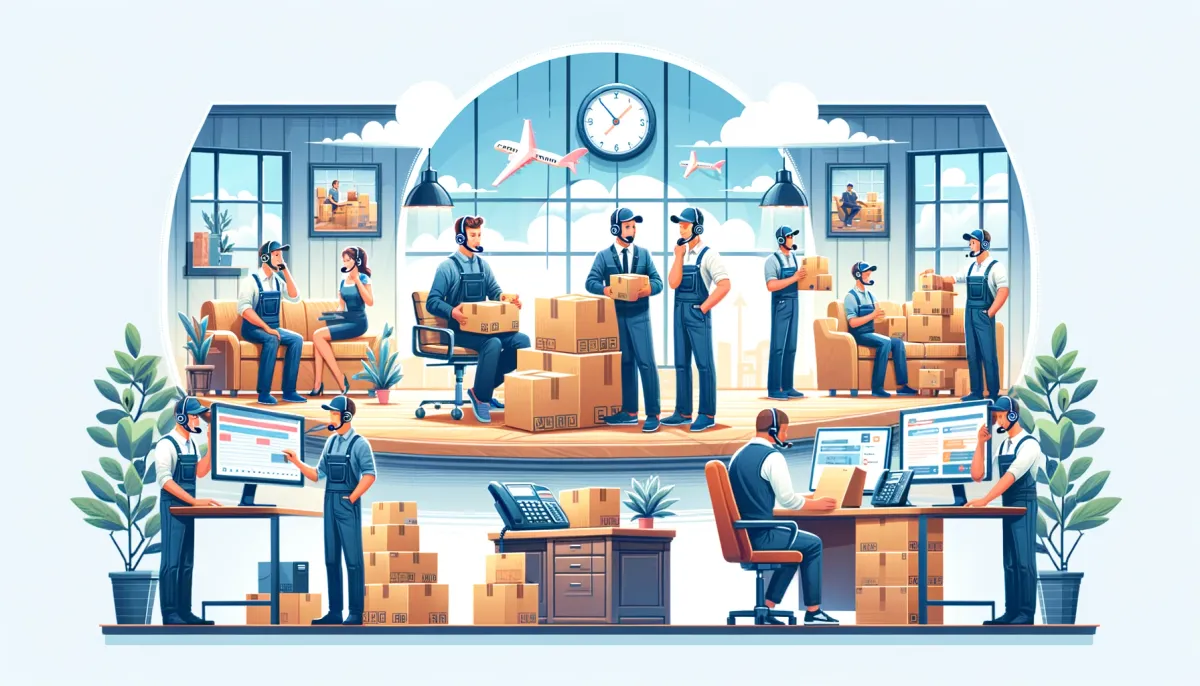
Moving to a new home can be a daunting task, filled with excitement and stress in equal measure. Amidst the chaos of packing, transporting belongings, and settling into a new space, one aspect often stands out for all the wrong reasons: customer service and support within the moving industry. From delayed deliveries to damaged goods, the moving experience can sometimes leave much to be desired in terms of customer satisfaction. In this blog post, we delve into the underlying reasons behind the challenges faced by the moving industry in providing stellar customer service and support.
- Fragmentation and Inconsistencies: The moving industry is characterized by its fragmentation, comprising numerous small and medium-sized companies operating in local markets. This fragmentation often leads to inconsistencies in service quality and customer support standards. With each company following its protocols and procedures, customers may encounter varying levels of professionalism and reliability, contributing to dissatisfaction and frustration.
Streamline your moving process with WeMove AI!
- Seasonal Demand and Resource Management: The demand for moving services experiences significant fluctuations throughout the year, with peak seasons typically occurring during the summer months. This seasonality presents a challenge for moving companies in effectively managing their resources to meet customer needs. During peak periods, companies may struggle to scale their support operations, resulting in longer response times, overbooked schedules, and increased instances of miscommunication.
- High Turnover and Inexperienced Staff: Many moving companies rely on seasonal or temporary workers to meet the surge in demand during peak seasons. However, this reliance often results in high turnover rates and a shortage of experienced staff members capable of delivering top-notch customer support. Inexperienced personnel may struggle to handle the complexities of moving logistics and address customer concerns effectively, leading to subpar service experiences.
- Complex Logistics and Operational Challenges: Moving involves a myriad of logistical challenges, from coordinating schedules and routes to ensuring the safe and timely transport of belongings. Any disruption or delay in the moving process can have ripple effects, causing frustration and inconvenience for customers. Issues such as damaged goods, missed delivery windows, and lost items can erode trust and confidence in the moving company's ability to deliver on its promises.
Streamline your moving process with WeMove AI!
- Limited Technology Adoption: Despite advancements in technology, some moving companies have been slow to embrace digital solutions that could streamline customer support processes. From online booking platforms to real-time tracking systems, technology offers opportunities to enhance transparency, communication, and efficiency throughout the moving journey. However, the reluctance to adopt such tools may hinder companies' ability to meet evolving customer expectations and deliver seamless experiences.
- Cost Pressures and Profit Margins: In a highly competitive market, moving companies face intense pressure to keep costs low while maintaining profitability. As a result, customer support budgets may be constrained, leading to compromises in service quality and responsiveness. While cost-cutting measures may yield short-term savings, they can ultimately undermine customer satisfaction and loyalty in the long run.
- Regulatory Environment and Oversight: Unlike some industries, the moving sector may lack comprehensive regulations and oversight, allowing companies to operate with varying degrees of accountability and transparency. Without clear standards and enforcement mechanisms in place, some companies may prioritize profit over customer satisfaction, further exacerbating issues related to service quality and support.
The challenges faced by the moving industry in delivering exceptional customer service and support are multifaceted and deeply rooted. From operational complexities and resource constraints to cultural norms and regulatory frameworks, numerous factors contribute to the perceived shortcomings in the customer experience. However, by acknowledging these challenges and proactively addressing them through investments in technology, training, and customer-centric practices, moving companies can elevate their service standards and build stronger relationships with their customers in the process. As customers, it's essential to advocate for transparency, accountability, and service excellence, thereby fostering a culture of continuous improvement within the moving industry.

